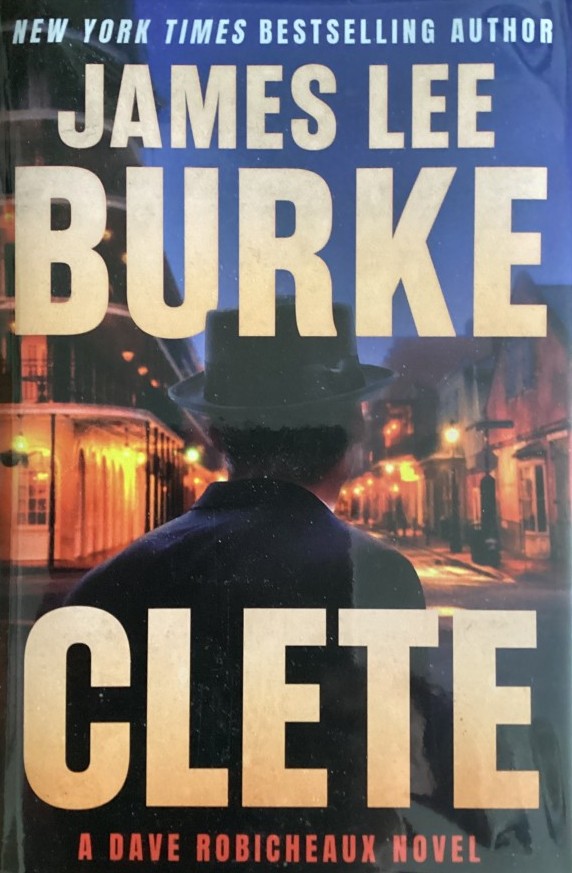Inspiring Older Readers
 posted on 24 Jul 2024
posted on 24 Jul 2024
Clete by James Lee Burke
I strongly support those who claim that the 87 year-old James Lee Burke has earned the right to be considered one of America’s great, if often unacknowledged, novelists. I’ve written elsewhere on this site about why I’m dedicated to the sequence of books featuring Dave Robicheaux, a New Orleans police officer who struggles with alcoholism and is driven by a strong sense of what is morally and ethically right. The books are always epic battles of good and evil and the lines between the two are what Robicheaux finds himself balanced on.
There have been consistent rumours that advancing old age will see Burke complete the sequence and each new release is hailed as probably the last. Then he surprises us all with another and this year it’s Clete – the 24th instalment - and it marks something of a departure from the formula we’ve all become accustomed to.
Fans of the Robicheaux series won’t be surprised to hear that in plot terms we are in very familiar territory. Street drugs, violent and powerful gang overlords, corrupt police, human parasites on the edge of the underworld, criminals with a casual disregard for human life – and standing against all this is Robicheaux and his ‘podner’, Clete Purcel (an even more morally ambiguous ex-cop turned Private Dick). There’s even the appearance of a criminal with elemental – even seemingly supernatural – characteristics of the kind that often haunts Robicheaux in his crusade against evil: this time an unnerving creature, tattooed from head to foot.
I really don’t think I need to tell you anything about the plot – the recipe of the ingredients I’ve provided above is probably enough to allow you to get a feel for what’s going on – and in any case you may want to read it for yourself and I don’t want to spoil it. But what I do want to tell you is why, on this occasion, I think Burke misses the mark.
To give us a different perspective of Robicheaux, the author has switched our line of sight and, for the first time, we see the action through the eyes of the detective’s side-kick, Clete Purcel. And he gets to tell it in the first person. This should, in theory, give us a more rounded idea of what it is that forms the unbreakable bond between the two men, tell us more about Clete’s world view and cast different shadows and perspectives on Robicheaux. This must have seemed a good idea at the time – but for me it simply doesn’t work.
I think the decision to use a first-person narrator actually makes Clete feel less real rather than more: it makes Clete and his motivations rather unconvincingly explicit and we’re forced to share his repeated desire to establish his social and political (with a small p) moral code. And it’s just not a convincing internal monologue. Much of Clete’s appeal in the other books is his slightly random presence – a bomb always waiting to unexpectedly explode. Taking us inside his head simply defuses this tension.
And, for me, Burke himself feels uncomfortable with what he’s doing here. The prose is not nearly as supple and well-sprung as usual and he feels weighted down by have to filter everything through Clete’s eyes.
For me this is a misstep by Burke in what has been an astonishing series of novels – and the man is allowed one when he’s done so much brilliant work. I have to say that I seem to be a dissenting voice when it comes to reviewing this book because the US critics I’ve read so far have been falling over themselves to laud the book as another unremitted triumph.
You’ll have to read it and make your own mind up now that it's available in the UK..
Terry Potter
July 2024